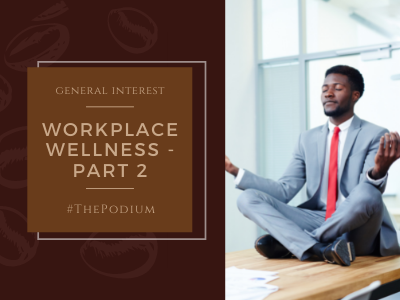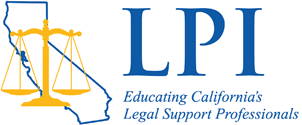
[This is the second of a four-part series]
Training. Paralegals and other certificated staff must maintain educational credits through classes and training. Both of these are provided online or some firms provide in-office training. Continuing to learn and stay on top of all the changing processes within the court systems, adapting to new e-filing procedures, ensuring you are using the more current version, and having that confidence that you have the resources you need is a part of workplace wellness. Knowing that your attorney and other staff you work with are also provided the necessary training, can further solidify a solid and positive work team.
LPI has several educational programs offered through classes, webinars, in-person seminars, publications, and the CCLS program. The LPI classes such as Trial Preparation and Advanced Discovery are some of the most vital classes that are a worthwhile investment. The resources provided in these classes can impress your firm and give you the confidence that your work product is above par. The CCLS program is comprised of study groups, or you can study on your own. It is recommended that you join a study group. The CCLS test is given 1-2 times per year (this is in flux at the writing of this post) and is now online. Having the CCLS designation means that you have passed a comprehensive exam comprised of California legal procedures, legal terminology, performance skills, reasoning and ethics, law office administration, communications, and legal computations.
More information about LPI’s classes and training can be found at: https://www.legalprofessionalsinc.org/education/
Communication. This is probably the most overlooked aspect of workplace wellness. Ineffective communication can lead to arguments, depression, anger, dissatisfaction, division, and stress. Each person is a unique human being, with unique communication skills developed over many years. What one person says in a matter-of-fact way, may come across as rude and mean to another person. What another person says in a kind manner, may come across as too personal or even harassment.
How do you stay neutral? How do you communicate effectively? How do you maintain open avenues of communication?
Finding the right balance between listening, friendliness, and open-mindedness is something we all need to learn. Your feedback and body language are also a part of communication. For those of you who want to explore this further, go to:
https://www.thebalancecareers.com/communication-skills-list-2063779
Connections. Humans are made to be social and to thrive on the pack environment. Isolation can often lead to depression and health issues. Developing and maintaining connections to those you work with and with your support system (family/friends), can sustain your emotional wellbeing. Maintaining connections with your co-workers can be accomplished by a phone call, text message, instant message, or video chat (Zoom, Microsoft Teams). Knowing you are not alone during a work project can help you avoid the negative aspects of working remotely and being isolated from your co-workers.
Maintaining and improving your support system that is comprised of family and friends can help you destress after work and provide you with something to look forward to – that special time in person with your close family or friends, or an uninterrupted video chat with a close friend.
The San Francisco Chronicle contained an article that includes more information about human connections.
In Part 3, we will explore telehealth and mental wellness.
If you missed part one, please click here to view the post.
Categorized in: General
| << previous | next >> |








